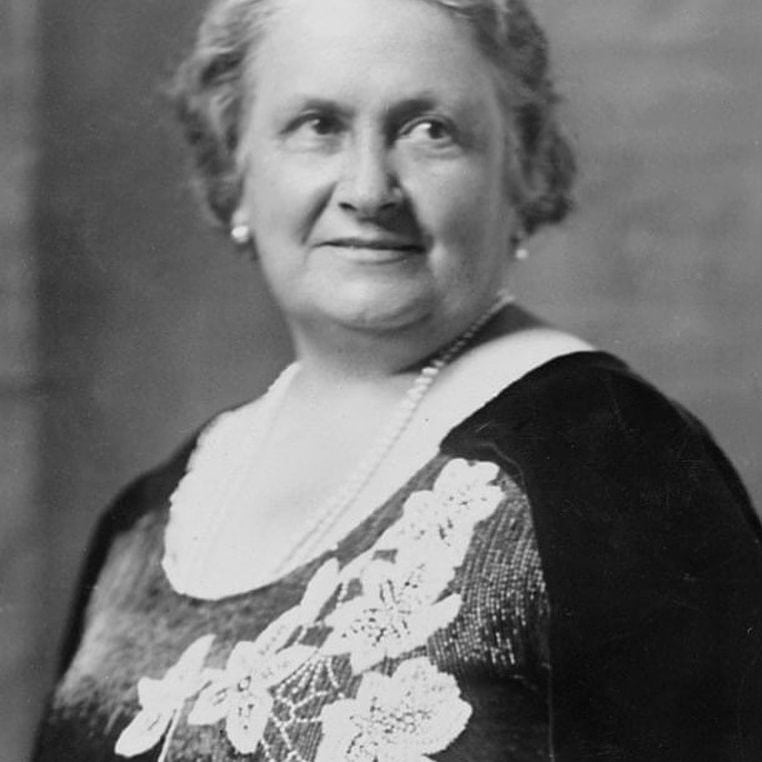There are four known parenting methods out there: authoritarian, authoritative, permissive, and neglectful.
Though the Montessori method isn’t as well known as those, it is a parenting style that originated back in 1907 and has given good results.
Where Did the Montessori Parenting Style Come from?
Its founder, dr. Maria Montessori was an Italian physician, educator, and innovator.
She was even the founder of the first Montessori school – Children’s House (Casa dei Bambini).
Today, dr. Montessori is considered a feminist icon. Last year, a movie was made about her life’s work – Maria Montessori, 2023.
What Does This Parenting Style Entail?

At the very core of Montessori parenting is natural learning.
This particular upbringing style seeks to remind us that children are more than capable of learning certain things by themselves.
If a child believes they can complete a task on their own, a parent and subsequently a teacher should support that belief.
The method is designed for children from birth to eighteen years old, though it’s strongly focused on early childhood and development.
Finding the Perfect Middle

The Montessori upbringing method seeks to find the balance between the authoritative and the permissive parenting style.
It offers more freedom and autonomy to the child, while also adding expectations.
Disciplining the child for eventual mistakes isn’t absent, but is focused on the child recognizing and admitting the mistake on their own.
In a way, the Montessori method is laid back, though it requires a lot more patience and trust from the parents than the traditional methods.
Planning to Introduce the Montessori Method Into Your Own Household? Here are 7 Tips

If you’d like to lean a little more into modern parenting and take a more relaxed approach, the Montessori method is a good choice.
It was founded by a woman who loved education and viewed children as her equals.
Though it’s generally considered to be a more relaxed approach to upbringing, it does require some strategy.
Let’s look at 7 tips for successfully implementing this method.
1. Respect Your Children

In order to encourage autonomy in a child, a level of respect has to be involved.
Of course, you’re still the parent and your word is final, but showing children respect will make them more confident and promote their willingness to tackle tasks on their own.
They’ll feel comfortable expressing their opinions and even asking for help.
Saying ‘please’ and ‘thank you’, and even apologizing to the child when you make a mistake can go a long way.
It causes the child to feel dignified but also teaches politeness and respect towards others.
2. Give Them Space

Allowing the kids to explore and have fun on their own is a huge part of Montessori parenting.
It’s not easy, I know. Every parent has the urge to hover above their child to make sure they’re safe and sound.
However, keep an eye on them quietly, and get involved only if they’re about to stray too far or put themselves in danger.
Make sure there are boundaries, and they know what they mustn’t do while they freely play and explore.
3. Accommodate Your Home for This Method

One way to help your children develop the feeling of autonomy is by letting them dress themselves.
This particular innovation, however, requires the kids to be able to reach the shelves and drawers without your help.
It’s recommended to get smaller wardrobes for the kids’ room or prepare a safe stepping stool so that they may pick their own clothes.
Also, make it easy for them to join you in daily activities and house chores. Have them wash the veggies for lunch, or have them dust the furniture they can reach.
4. Cause & Effect

Allow them to understand and experience the consequences of their own actions. Nothing long-term or dangerous, of course.
Though, allowing the child to make mistakes and experience the consequences promotes self-reliance, decision making, and even emotional control.
5. Observe and Adapt to the Children

The required patience comes handy in here.
The Montessori method implies you keep a close eye on your children and react only when necessary.
For example, if your child is playing with word cards, and you notice they’re getting bored – it probably means they’re ready to move on to something a little more challenging.
This allows you to subtly add higher and higher goals at the child’s own pace.
6. Other Family Members Should be Included

One parent doing all they can to implement the Montessori parenting method isn’t enough.
Not only both parents, but grandparents and other relatives who spend a lot of time with the child should respect the chosen method.
Some parents even choose to enroll their children in Montessori schools, though there aren’t too many to be found.
7. Don’t Coo to the Children Too Much

Of course, you’re going to be playful and baby your children at times. That’s also natural and necessary.
However, try to use a regular tone of voice and normal to advanced words when speaking to them on a daily basis.
This will allow them to develop conversational skills quicker and make them feel like your equal.
There Are Possible Cons

Though the Montessori method has the child’s best interest in mind, mistakes could easily be made if you’re not careful.
If you’re too disciplined about it, it could easily turn into an authoritarian parenting style.
On the other hand, too little discipline with a lot of catering can make you an overly permissive parent.
It’s not easy to find the perfect middle, and in the end, it all comes down to what the child benefits from.
If your child doesn’t resonate with the method, there’s no point in enforcing it.
All in all, the Montessori method is worth a try, as it can have amazing outcomes.


